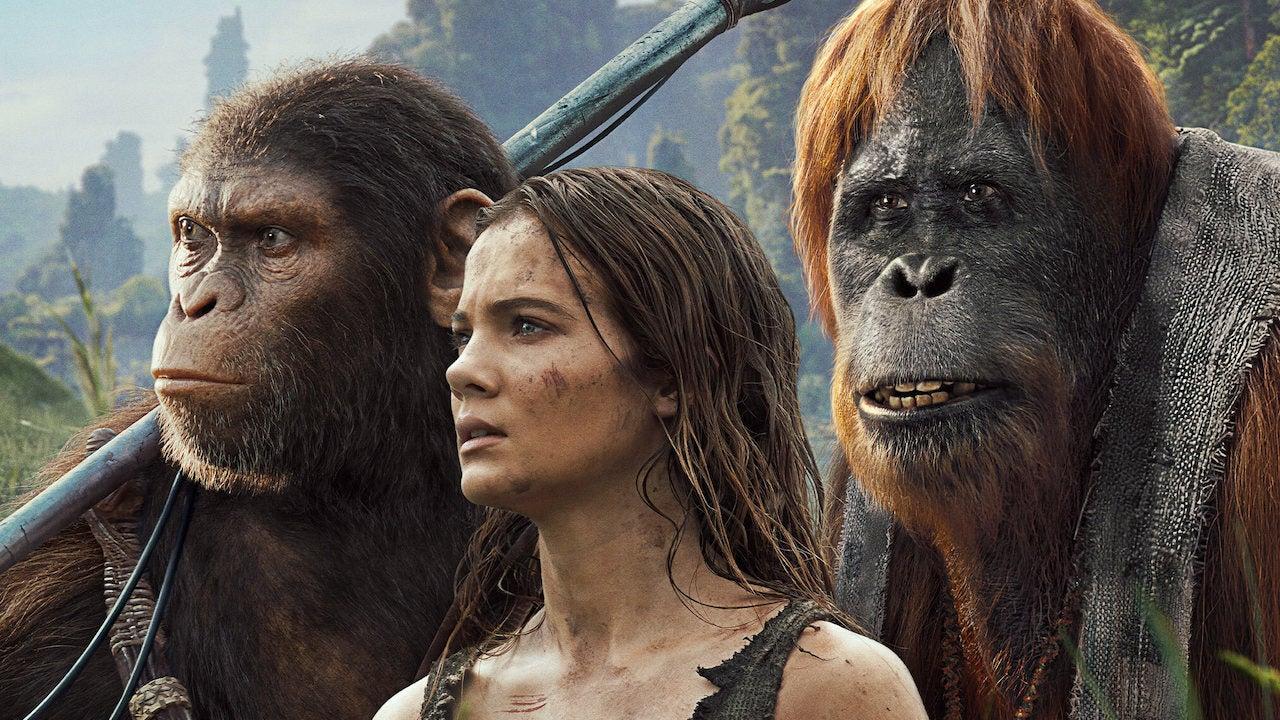Caesar, the protagonist of the film, was brought to life using innovative performance capture technology by Andy Serkis. If you still doubt his talent, let me remind you that he delivered performance after performance that deserved an Oscar, not just a mention. The story of Caesar continued in the two subsequent films, all directed by Matt Reevers. The first being “Dawn of the Planet of the Apes” released in 2014, followed by “War for the Planet of the Apes” in 2017. In the first film, we have Franco’s character who raises Caesar. By the time the trilogy is over, Caesar has successfully asserted his dominance as the leader of his place and gated the world built by humans. This is made possible through a man-made virus that grants intelligence and the ability to speak to apes while taking it away from humans.
This trilogy might stand out as the best franchise of the century so far. It contributes greatly to balance the cinema mega-verses while reminding us of what we want from high budget, thoughtless Hollywood blockbuster sequels: insightfully entertaining content on humanity's identity and aspirations. From this legacy walks “The Maze Runner” director Wes Ball's brilliant “Kingdom of the Planet of the Apes,” which strides confidently while deeply honoring the value of fairness, loyalty and communal solidarity that the Caesar-centric films epitomized.
As with previous films, Ball’s sequel understands these principles are not uniquely human—in his highly imaginative sci-fi adventure, and in our world, the animal kingdom is governed by its own logic and morals. Alongside his screenwriter, Friedman, Ball confidently presents what could be considered a visual wonder of thrilling action sequences in conjunction with a film that is intelligent and coherent in plotting—and thematically intricate with the narrative. “Kingdom” boasts a compelling and cohesive narrative—there’s not a single idea presented that’s devoid of supporting reinforcement that enriches and ties together the narrative. This is a film, no, a franchise, where the audience can appreciate the presence of… skilled writers and filmmakers who were provided the creative space to construct cohesive narratives, rather than sterile conference rooms tailored for soulless fanservice.

"Kingdom" takes place generations later after “The War” and the reign of Caesar. Young chimpanzees of the Eagle Clan Anaya (Travis Jeffery), Soona (Lydia Peckham), and Noa (Owen Teague) are attempting to adjust to the drastic shift brought about by the Reset. As all three of them have also captured through performance capture, they have to grow mountanious heights so that Noa can retrieve an eagle egg during the clan’s rituals which enables Noa to bond over the majestic bird during the latter years of his existence similar to the elderly in his world. After an incredibly photographed, action packed adventure that almost takes his life, the dauntless Noa is ultimately able to retrieve his egg.
With the help of a mysterious human Freya Allan’s Mae who is both feral and capricious, Noa is set on a quest to retrieve a new egg after a daring venture leads to his current one being broken. This takes place in the no-fuss area which soon is transformed into the villainous no-frills masked ape zone ruled by Proximus Caesar (Kevin Durand). Proximus, in the attempt of fullfilling humans' elusive antiguities, turns every quote a quote Ceaesar said into ammunition and uses the disguised apes for war fuel his army to “Apes Built Strong”, which served as wisdom for a myriad of his quotes, and secret technology forged by long gone people, exploits Noa’s village, executes his father, and pursues Mae for the sake of unlocking them.
Every turn in the nail biting cat and mouse action is enhanced by immersive cinematographer Gyula Pados’ unique heart-pounding action set pieces which are far more nuanced than contemporary standards.
“After a sweet episode where Noa interacts with a lonely orangutan and learns that Caesar truly is a strong, caring, and noble ruler, Proximus captures the young ape and Mae along with the other Eagle Clan slaves, Noa’s friends included. T. Dorrance’s production design truly comes alive in these scenes with the detail of the ‘Waterworld’-like ape settlement and the vault, which the humans have evacuated, is breathtaking. We do get inside the vault, though perhaps a bit too easily.”
In the stunning third act of the film, where it plants the seeds for future chapters, remixing the question of whether peace can be achieved inter-species—while adopting breathtaking “The Way of Water” visuals—culminates to reveal its essence. But even more crucial, the smartly and thoughtfully anti-gun and anti-violence “Kingdom” examines the issues and tragedies concerning the world. Are there moments that require the abandoning of pacifism? (The shocking scene with Mae makes one wonder why more films don’t dare pose such a bold question.) What happened to learning lessons, if that is even what we’re doing, from our so-called past experiences? Why can’t we all just coexist peacefully for a change?
To be clear, “Kingdom” does not provide solutions. But rest assured this rare, deeply cinematic Hollywood franchise will keep working relentlessly towards providing at least a glimpse into the answer.


